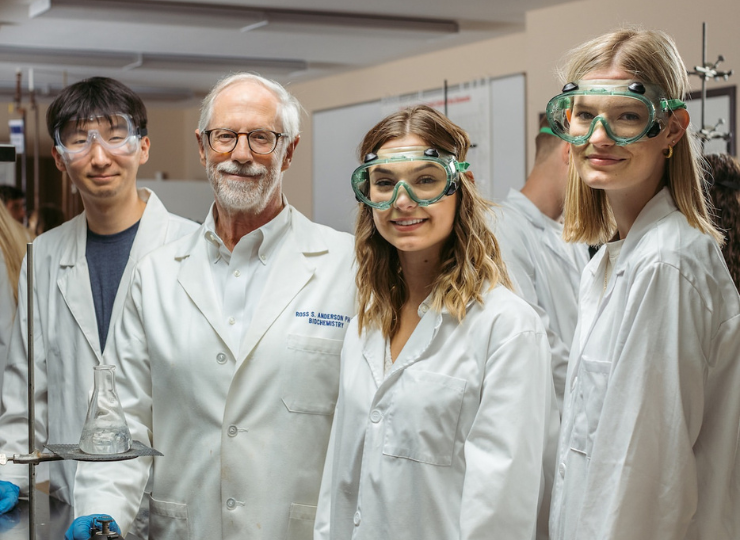Conjugated systems, aromatic compounds and their reactions, spectroscopy, synthesis, and reactions of carbonyl compounds, including carboxylic acids, esters, amides, beta-dicarbonyl compounds, phenols, amines, and carbohydrates. The philosophy of organic synthesis and a brief introduction to natural products and biochemistry are included.
Course Highlights
Investigates proteins (structures and functions), enzymes (kinetics and regulation), biological oxidation-reduction, and thermodynamics of living systems. Particular attention is given to the integration and regulation of intermediary metabolism. In the laboratory, students learn the theory underlying many common biochemical techniques. Students also gain practical, hands-on experience for several of these techniques, such as gel filtration chromatography, ion exchange chromatography, affinity chromatography, thin-layer chromatography techniques in enzyme kinetic assays, determination of the binding specificity of proteins, protein fingerprinting, SDS-PAGE and molecular weight determination, agarose gel electrophoresis, peptide mapping, and Western blotting.
An integrated study of the functions of the human body systems in the context of homeostatic control and disease conditions.










